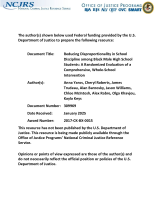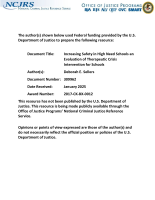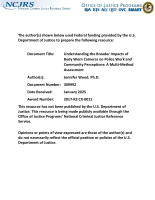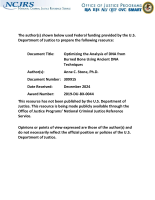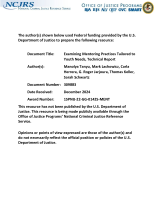Survey of the Genetic Diversity of Phormia regina (Diptera: Calliphoridae) Using Amplified Fragment Length Polymorphisms
Journal
Journal of Medical Entomology
Date Published
October 2014
Agencies
NIJ-Sponsored
Publication Type
Research (Applied/Empirical)



